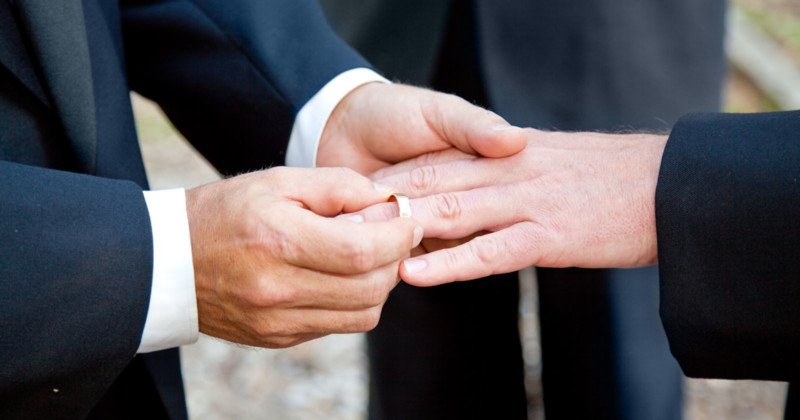![]()
A federal court has dismissed a lawsuit filed by a Christian wedding photographer who claimed that providing services to same-sex couples goes against her faith and that New York’s human rights law violates her First Amendment rights.
Photographer Emilee Carpenter of New York State’s Southern Tier region filed a federal lawsuit against the state of New York in April 2021 after she was asked to photograph the weddings of seven same-sex couples. Carpenter stated that the state’s nondiscrimination laws have left her with a choice of either going against her religious beliefs or paying fines up to $100,000 if she refuses to photograph same-sex weddings.
In the lawsuit, Carpenter named New York Attorney General Letitia James and Interim Human Rights Commissioner Jonathan Smith as defendants and said the state’s law violates her First Amendment right to freely exercise her religion through her wedding photography business.
Carpenter explained that she uses her business to express her religious beliefs about marriage, which is the reason for the refusal of same-sex wedding coverage. Carpenter also alleged that her rights to free speech and free association were violated, in addition to the establishment cause and her right to due process.
“Just as the government cannot compel a lesbian baker to create a cake condemning same-sex marriage or an atheist playwright to wax positively about God, New York cannot force Emilee to convey messages she objects to,” the complaint states.
On December 16th, U.S. District Judge Frank P. Geraci Jr. of Western New York, a Barack Obama appointee, ruled that “the Court is not persuaded” by Carpenter’s claims, dismissing them.
In a major victory, a judge has dismissed a lawsuit brought by an Elmira wedding photographer who refused to photograph same-sex marriages.
My office will always fight to ensure that every New Yorker is treated equally under the law across our entire state.
— NY AG James (@NewYorkStateAG) December 16, 2021
“The crux of Plaintiff’s claims is that her photography is the product of her unique artistic style and vision,” reads Geraci’s ruling. “Thus, an exemption for Plaintiff’s unique, non-fungible services would necessarily undermine, not serve, the State’s purpose, as it would ‘relegate [same-sex couples] to an inferior market’ than that enjoyed by the public at large.”
Geraci also noted that Carpenter is not required to partake in any religious exercises at the events she photographs.
“Insofar as those activities are not services that Plaintiff is hired to provide, the laws would not compel Plaintiff to participate in any religious exercises at same-sex weddings just because she chooses to actively and religiously participate in them when she photographs opposite-sex weddings,” Geraci writes.
“The religious activities occurring at a wedding, whether for a same-sex couple or an opposite-sex couple, are directed at the couple, the friends, the family, and any other invitees in attendance. They are not directed at the caterer, the florist, or the photographer.”
“LGBTQ acceptance is growing thanks to leaders in New York, like Attorney General James, who fight for equal treatment in every area of society and defend laws that secure it.” @sarahkateellis https://t.co/NupwvDxmzh
— GLAAD (@glaad) December 16, 2021
“An overwhelming majority of Americans of every race, faith and political party support laws that protect LGBTQ+ people from discrimination,” writes GLAAD President and CEO Sarah Kate Ellis in a statement. “Non-discrimination laws protect every citizen and send a signal that all are welcome and that’s good business.”
Alliance Defending Freedom, the Arizona-based Christian nonprofit group whose attorneys represented Carpenter in the case, is pushing for the US Supreme Court to look at the case.
“The court’s decision continues down a dangerous path of the government compelling artists to speak messages that violate their religious beliefs—or imposing steep fines, closing their businesses, or throwing them in jail,” said ADF Senior Counsel Jonathan Scruggs in a statement. “Artists like Emilee and Lorie Smith in Colorado are protected under the Constitution to freely live and work according to their religious beliefs. Yet the 10th Circuit’s Orwellian decision in 303 Creative v. Elenis opened the door for government officials to compel all manner of speech—forcing total compliance of state-approved speech or be treated as criminals.
“Emilee and Lorie happily serve all people; they just cannot promote messages which contradict their religious beliefs, including their views on marriage. We earnestly hope the Supreme Court will hear Lorie’s case and protect the constitutional freedoms for all Americans, including creative professionals like Lorie and Emilee.”
Image credits: Header photo licensed from Depositphotos
